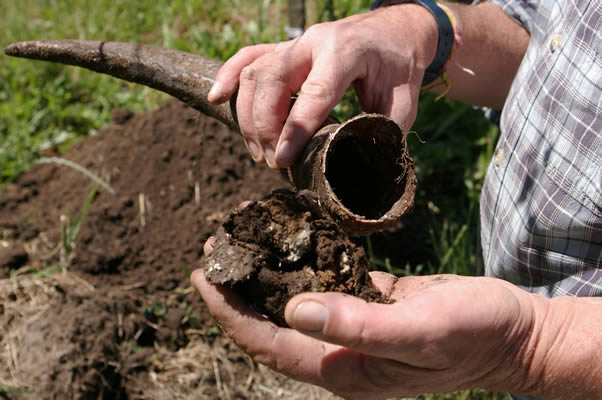 |
| Clay amphora used for fermentation at COS Winery, Sicily |
I realized in putting together my list of wines for our Indigenous Varieties for Adventurous Palates is that all of the wines are considered "natural". And then I realized how hard it is to explain natural wines to someone who hasn't experienced them or understand their relevance in the world of wine. It's even harder to nail down a definition to help one understand exactly what "natural" means. There is no codification or standardization of practice, but more an ideology that is based on, in very simplistic terms, a commitment to minimum intervention in winemaking that leads to producing wines with a sense of place. I know that is a very loose and broad statement and I in no way claim to be an authority, just someone who loves the end result!
One post I read compared the natural wine trend to cheese. Which do you prefer, a processed chunk of supermarket cheddar in a plastic wrapper that tastes the same every time you buy it or one in which a farmer is on a first name basis with his cows makes with traditional methods handed down from generations that could be different each time he makes it? While this is a pretty gross generalization, you get the picture.
 |
| Josko Gravner and many other natural winemakers producer skin fermented whites |
The argument put forth by natural winemakers is that modern wines are too processed. They feel that too many producers are dependent on the winemaker's tool box. If nature hasn't given you enough acidity, tannin or sugar in the vineyard, then you can add tartaric acid, powdered tannins or concentrated grape juice to taste. Can't afford an oak barrel? Then chuck oak chips in the vat.
 |
| A biodynamic preparation from a cow's horn that has been buried into the ground at Milton Vineyards in New Zealand. |
While there is no real standardization of practices, the reoccurring theme in natural winemaking seems to be not to add anything or take anything away from what the vineyard gave you to work with. In other words, what you taste is what you get! Most use biodynamic and/or organic processes, but many are not certified as such, although some like Frank Cornelissen consider these practices in themselves a type of intervention. They do use natural, wild yeasts, not the bought, cultivated strains and they add little or no sulphur dioxide. They tend to focus on indigenous varieties, but again, some do not. Some use wood barrels others abhor the practice and will only use clay amphorae.
 |
| Frank Cornelissen's unconventional fermentation vats for producing his "Contadino" |
The Louis/Dressner Portfolio features the largest selection of natural wines that I've seen from an importer.
Their website has great information on the producers they represent, videos of interviews with their winemakers and the way in which they define "natural" winemaking:
The following techniques and guiding principles are what we believe is winemaking with integrity and respect for the traditions of the native region. This is fine winemaking at its purest, most fundamental level.
Wild Yeasts:
All wines are made with the natural yeasts on the grapes, in the vineyards and in the cellars. Cultured yeasts to rush fermentation or add “enhancing” aromas and flavors are unacceptable. We look for wines that express their terroir. No enzymes, no hormones.
Hand Harvesting:
Growers harvest by hand, not machine. We want the ripest fruit to be brought carefully and lovingly into the winery.
Low Yields:
The growers want low yields for greater concentration. We look for growers with holdings in old vines.
Natural Viticulture:
We encourage growers to plow their vineyards to keep the soil an active eco-system, and to use natural methods in tending their vines.
No or Minimal Chaptalization:
We do not want an artificially high degree of alcohol produced by adding sugar to the must. Non- or slightly chaptalized wines are more enjoyable and healthier to drink.
Non-Filtration:
Wines are either not filtered or minimally filtered. We also encourage low levels of SO2.
Non-Interventionist Winemaking:
We prefer a harmony, not an imposed style —wines should showcase their place of origin and varietal character. We are not looking for oak flavor, particular fruits or overly done aromatics. Minimal use of S02 is encouraged.
Enjoyment!
Lastly, our most important “principle.” Because, the overblown world of overdone wines is fundamentally tiresome. We’re not looking for tasting specimens, but for wines that are great fun, and a great pleasure to drink.
While as I said I in no way consider myself an authority on natural wines, what I do know is that I've had enough of them now that I can taste the difference. And in most experiences I love what I find in a glass of natural wine: a common purity, vibrancy and authenticity that I find intoxicatingly intriguing and usually delicious! So I hope you will join us on Tuesday and try some natural wines made with very cool indigenous varieties by some superstar winemakers!
No comments:
Post a Comment